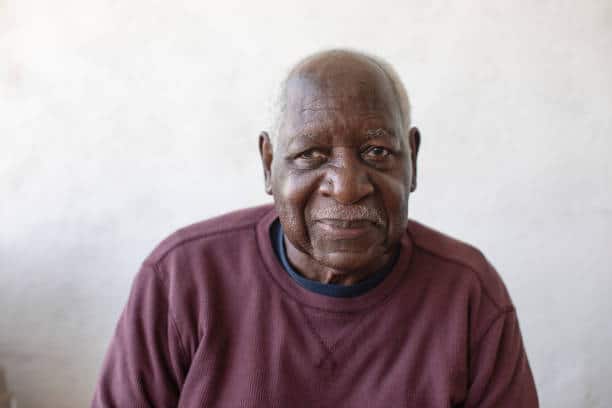
Being diagnosed with small cell lung cancer is a life-altering moment. The medical terms, treatment schedules, and doctor’s visits can quickly take center stage. But beyond the hospital walls, there’s an equally important part of the journey — learning how to live fully, meaningfully, and comfortably while navigating this aggressive disease.
While every person’s experience with SCLC is unique, there are shared strategies, emotional truths, and lifestyle adjustments that can help make the path a little smoother.
1. Building a Care Team You Trust
The first step to living well with SCLC is feeling confident in the people guiding your care. This means not only your oncologist, but also:
-
Nurses and nurse navigators who can answer day-to-day questions.
-
Palliative care specialists who focus on comfort and quality of life.
-
Mental health professionals who understand cancer’s emotional impact.
When you trust your care team, you can shift your energy away from constant worry about “Am I doing the right thing?” toward actually living.
2. Managing Energy, Not Just Time
Cancer treatments can bring fatigue that isn’t fixed by simply “getting more rest.” It’s about energy management:
-
Prioritize: Decide what matters most each day — and let the rest slide.
-
Pace yourself: Spread tasks out, and alternate activity with rest.
-
Plan around your body’s rhythms: If mornings are your strongest time, schedule important activities then.
Think of your energy like a budget. Some days, you’ll have more to spend. Some days, you’ll need to save.
3. Eating for Strength (Not Perfection)
Nutrition during cancer treatment is less about trendy “superfoods” and more about getting enough calories and protein to help your body heal.
-
Small, frequent meals can be easier to handle than big ones.
-
Protein-rich snacks — like yogurt, nuts, or cheese — help maintain muscle mass.
-
Hydration matters — even mild dehydration can make fatigue worse.
If eating becomes difficult due to nausea or mouth sores, a dietitian can help create a plan that works for you, not just a generic “healthy eating” chart.
4. Staying Active — in Your Own Way
You don’t have to run a marathon to reap the benefits of movement during cancer treatment. Gentle activity can help reduce fatigue, improve mood, and keep your body strong.
-
Short walks in fresh air
-
Light stretching or chair yoga
-
Resistance bands for muscle tone
The goal isn’t to train for a competition — it’s to keep your body engaged and your spirits lifted.
5. Emotional Well-being: Letting Yourself Feel Everything
A diagnosis of SCLC brings a full spectrum of emotions: fear, frustration, hope, and sometimes even guilt for feeling hopeful. All are valid.
-
Support groups — online or in person — offer connection with people who get it.
-
Therapy or counseling provides a safe space to process feelings.
-
Creative outlets like painting, journaling, or music can be deeply therapeutic.
Suppressing emotions doesn’t make them disappear — it just makes them heavier to carry.
6. The Role of Palliative Care (Early On)
Many people think palliative care means “giving up,” but that’s far from the truth. Palliative care teams work alongside your oncologist from early in the diagnosis to:
-
Manage pain and other symptoms.
-
Reduce treatment side effects.
-
Support mental and emotional health.
It’s about living better with the cancer you have, not surrendering to it.
7. Nurturing Relationships
Cancer can put strain on relationships — not because people care less, but because they often don’t know what to say or do.
-
Communicate openly about what helps and what doesn’t.
-
Ask specifically for help — “Could you drive me to treatment Tuesday?” is easier for friends to respond to than “Let me know if you can help.”
-
Make room for joy — watch a favorite movie, celebrate small wins, and keep laughter in the mix.
8. Planning for the Future (Your Way)
Living with SCLC often means balancing hope for more time with practical planning for the future. For some, that means bucket lists. For others, it’s about getting affairs in order to reduce stress later.
-
Legal documents like advance directives or powers of attorney.
-
Memory projects — photo albums, letters to loved ones, recorded stories.
-
Scheduling trips or experiences you’ve been putting off.
It’s not about “preparing for the end” — it’s about making the most of now.
9. Celebrating Small Victories
Living with cancer can make big milestones feel uncertain, but that makes the small wins even sweeter:
-
A treatment side effect easing up.
-
A scan showing stability.
-
A day where you feel more like yourself.
Mark these moments. They’re worth noticing and honoring.
10. Staying Connected to Your Identity
Cancer can try to take over your sense of self, but you are more than your diagnosis. Keep engaging in activities, conversations, and interests that remind you who you are — the whole you, not just the patient.
Whether that’s tending a garden, reading mysteries, baking bread, or cheering on your favorite sports team, these moments reinforce that you’re still living, not just surviving.
Final Thoughts
Living with small cell lung cancer isn’t about denying the challenges — it’s about creating a life within those challenges that still feels meaningful, connected, and joyful when possible. While treatments work to fight the disease, your daily choices, routines, and support systems work to protect your spirit.
Some days will be heavy. Others will surprise you with lightness. But through it all, the goal remains the same: to live your life, in the way that feels right for you, one day at a time.








